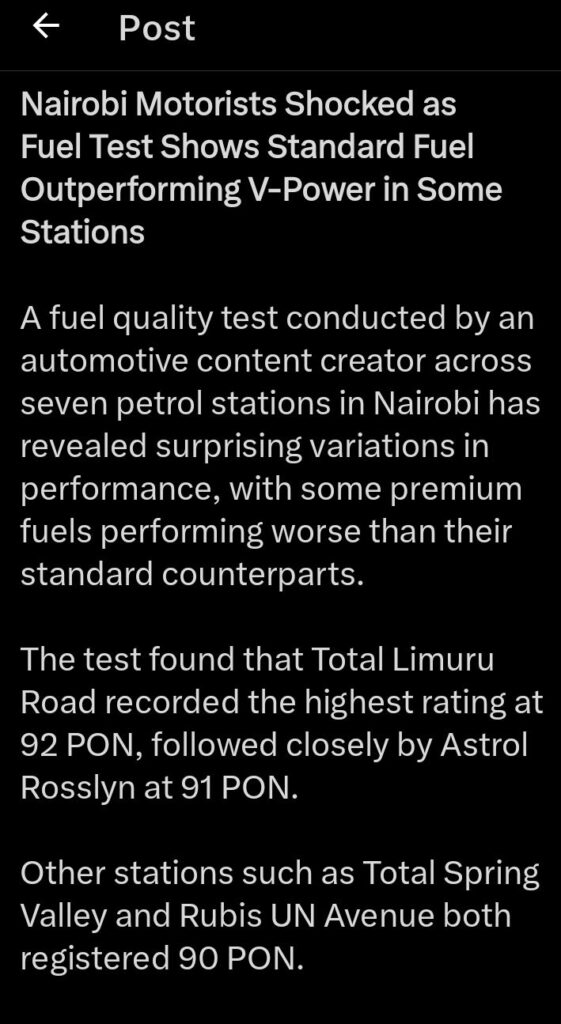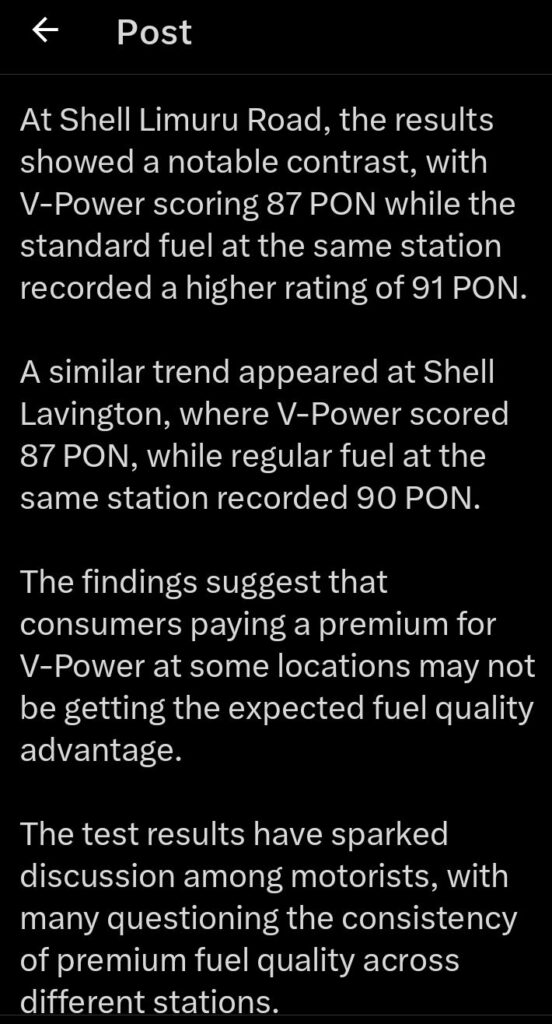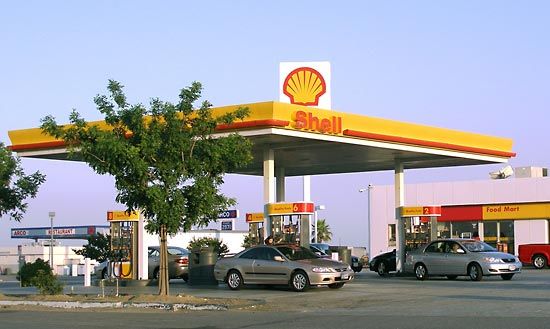Nairobi motorists have been left in shock after a recent fuel quality test revealed some surprising results.
The test, conducted by an automotive content creator across seven petrol stations in the city, showed that some premium fuels, like Shell’s V-Power, were outperformed by standard fuels at the same stations.
This has raised serious questions about the quality of fuel being sold to consumers, especially those paying extra for what is marketed as a superior product.

The test measured the Performance Octane Number (PON) of the fuels, which indicates how well the fuel can resist knocking or pinging during combustion.
Higher PON values generally mean better performance. Total Limuru Road came out on top with a rating of 92 PON, followed closely by Astrol Rosslyn at 91 PON. Other stations like Total Spring Valley and Rubis UN Avenue also performed well, both registering 90 PON. These results were expected, as these brands have built a reputation for quality over the years.
However, the real shock came when the results from Shell stations were revealed. At Shell Limuru Road, the premium V-Power fuel scored only 87 PON, while the standard fuel at the same station recorded a significantly higher rating of 91 PON.

A similar pattern was observed at Shell Lavington, where V-Power scored 87 PON, while the regular fuel at the same station scored 90 PON.
This means that motorists who paid more for V-Power at these locations were actually getting a lower-quality product compared to the standard fuel sold right next to it.
These findings have sparked a heated debate among motorists in Nairobi. Many are questioning why they should pay a premium for V-Power if it doesn’t deliver the promised performance advantage.

Some are even accusing Shell of shady business practices, suggesting that the company may be cutting corners to maximize profits at the expense of consumers.
The inconsistency in fuel quality across different stations has also raised concerns about how these companies maintain their standards.
For years, Shell has marketed V-Power as a high-performance fuel designed to enhance engine efficiency and power. Motorists have been willing to pay extra for this promise, believing they were getting a superior product.

However, this test suggests that the reality may not match the marketing hype. If premium fuels like V-Power are underperforming compared to standard fuels at the same station, it raises serious doubts about the integrity of the brand and the value it offers to consumers.
The implications of these findings are dire. Motorists rely on fuel quality not just for performance but also for the longevity of their vehicles.
Poor-quality fuel can lead to engine problems, reduced efficiency, and higher maintenance costs over time.
If premium fuels are failing to meet expectations, it could damage consumer trust not just in Shell but in the entire fuel industry.
Many are calling for stricter regulations and more transparency in the fuel industry.
Consumers deserve to know exactly what they are paying for, especially when it comes to something as essential as fuel.
For now, the results of this test serve as a wake-up call for motorists to be more vigilant and for companies like Shell to take a hard look at their practices.
After all, trust is hard to earn but easy to lose, and shady business practices will only lead to a loss of credibility in the long run.





















Add Comment